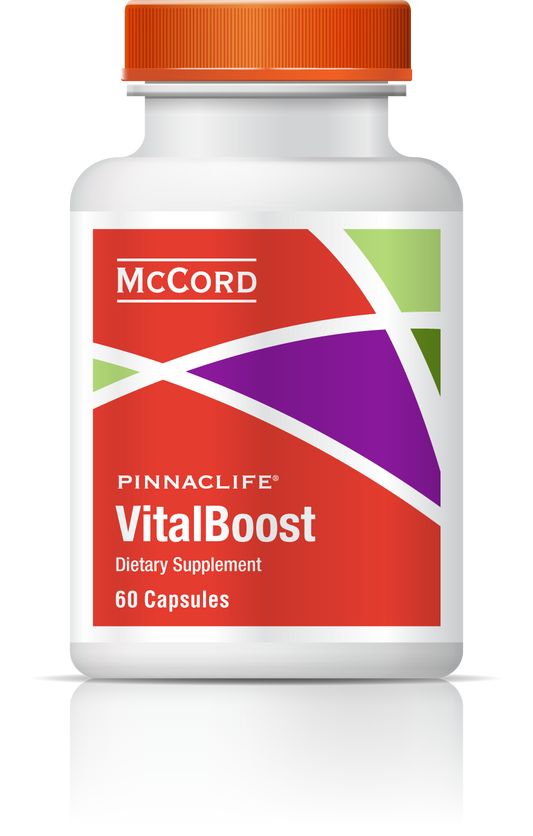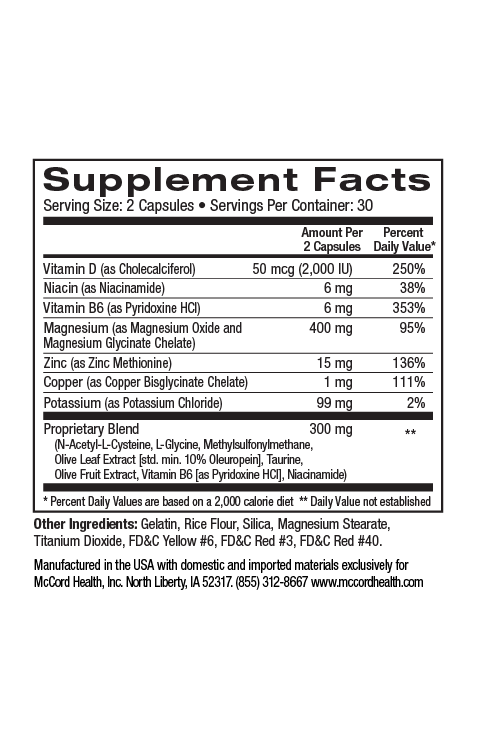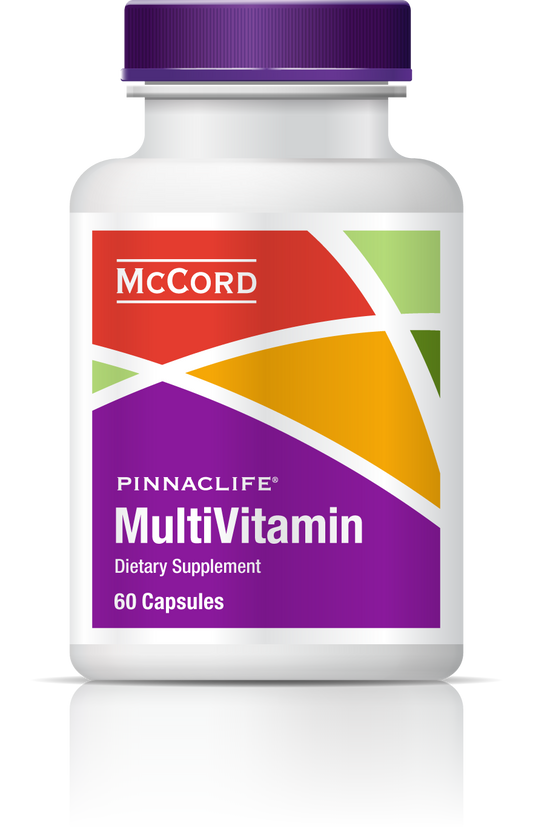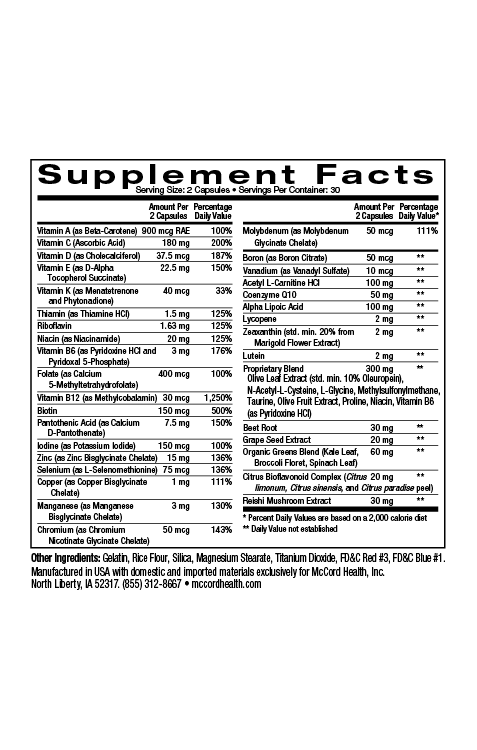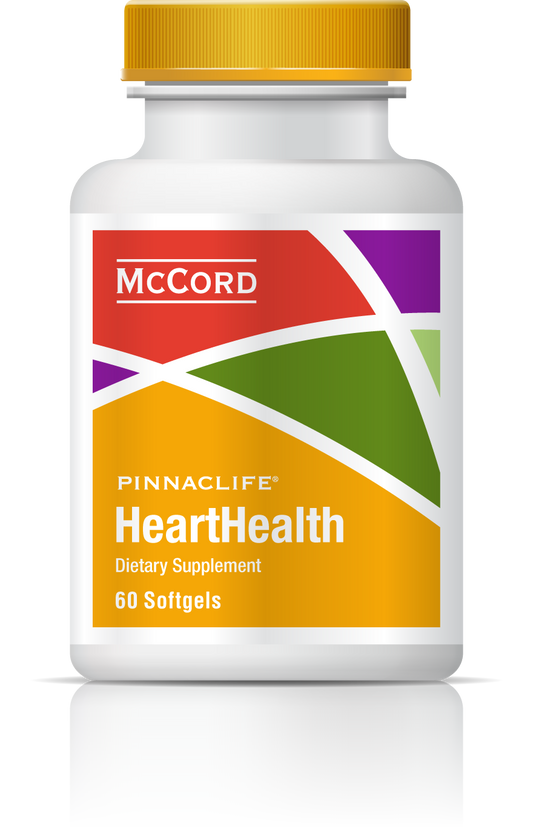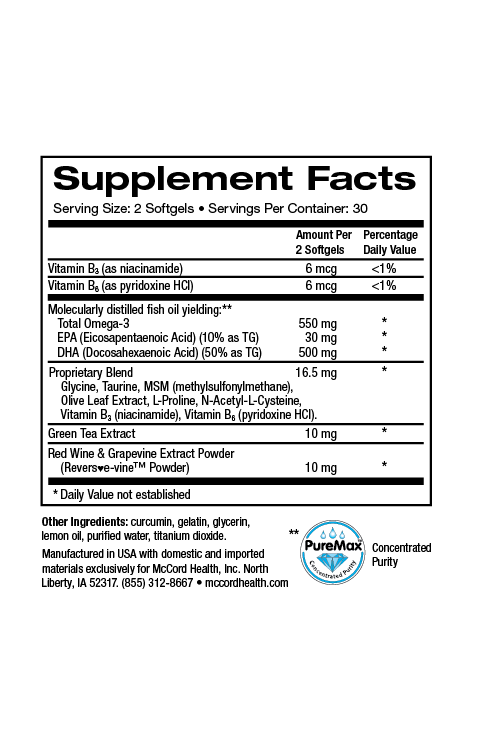Short Read
Your body is constantly exposed to toxins from both internal and external sources. The body has natural mechanisms to help detox - that is, to neutralize and eliminate toxins. However, without adequate nutritional support those natural detox mechanisms can become depleted and overwhelmed leaving the body vulnerable leading to disease and premature aging.
- Exposure to toxins is unavoidable
- Some toxins come from your surroundings while others are produced internally
- Your body has natural systems in place to deal with toxins appropriately
- Natural detox systems can be overwhelmed if they aren't properly supported
- There are key nutrients that can help your body's natural detox systems run more efficiently
Tell Me More About Healthy Detox!
Before we get started, I want to make something very clear:
When people talk about detox, it tends to be the "2 week cleanse" type of detox where you try to clean out your body over a short period of time.
This is not the type of detox I am talking about, or recommending.
Instead - I want you to think about how you work to support your body over the long term - helping it handle the detoxification processes that occur all day and every day of your life - not just for a couple weeks at the start of a new year.
Daily Exposure to Toxins
You are probably aware that there are unavoidable toxins in our air, food, and water that the body needs to be able to handle in order to avoid health problems. Even medications need to undergo detoxification to avoid accumulating and causing toxicity. It’s best to limit your exposure to environmental toxins, but inevitably some will get into the system where they need to be neutralized and eliminated before they cause damage to your cells, tissues, and organs.2–7
But did you know even if you were able to completely avoid environmental toxins, your body constantly creates its own waste products that continuously need to be neutralized and removed from the cells and bloodstream?
Eliminating Toxins Naturally (Natural Detox)

Your body neutralizes and removes toxins by filtering blood through your liver where enzymes and antioxidants convert waste products into forms that can be more easily excreted from the body. This is a vital function because waste products from cellular metabolism, such as free radicals, can cause inflammation and damage to lipids, proteins, and DNA when they are not neutralized or removed.1
Your skin and the cells that line your lungs and gastro-intestinal tract also work diligently with your immune system and beneficial bacteria to protect your body from environmental toxins.
5 Nutrients Essential for Detox
Proprietary Blend supplements contain a wide variety of nutrients that are known to help neutralize free radicals and increase elimination of waste products and toxins through a variety of mechanisms.
1.) Acetylcysteine (N-acetyl-l-cysteine / NAC)
Acetylcysteine is a naturally occurring sulfur-containing amino acid vital for production of one of the most essential cellular detoxifying antioxidants, glutathione.8–10 Glutathione levels can be depleted by medications, toxins, some diseases, and nutrient-poor diets, resulting in cellular stress.8,11–13
NAC is the safest and most effective remedy to restore cellular levels of glutathione.10,13–16 NAC is found in all Proprietary Blend products, but the highest dose is found in ImmuneHealth. Natural dietary sources include foods like garlic, broccoli, onion, and oats.
2.) Hydroxytyrosol
Hydroxytyrosol from olives can actually help turn on cellular antioxidant systems by increasing the expression of intrinsic antioxidants like MnSOD.20 These antioxidant pathways are vital for helping cells neutralize free-radicals generated by metabolic processes in the mitochondria, keeping the cells healthy. Hydroxytyrosol from olive leaf extract is found in all McCord Research Olivamine® products, but the highest dose is found in ImmuneHealth.
3.) Dietary Fiber
Dietary fiber can act like a sponge in the intestines, soaking up toxins and waste products so they can be eliminated instead of absorbed into the blood stream.25–30 It also helps to support beneficial bacteria that help to metabolize toxins and nutrients before they enter your blood stream, while improving intestinal health, digestion, and waste elimination.31,32 You can easily boost your dietary fiber intake and support healthy intestinal bacteria with Proprietary Blend DigestiveHealth that provides 11 grams of soluble prebiotic fiber per serving.
4.) Sulforaphane
Sulforaphane is a naturally occurring antioxidant found in foods like broccoli, cauliflower, cabbage, and other cruciferous vegetables. Sulforaphane has been shown to help support your body’s natural detoxification pathways by increasing the activity of metabolic enzymes in the liver.17,18 It has also been shown to protect the cells that line the stomach and decrease the permeability, potentially reducing absorption of potentially harmful compounds.19 Sulforaphane is included in Proprietary Blend BrainHealth, and JointHealth.
5.) Additional Antioxidants
Antioxidants like EGCG from green tea, curcumin from turmeric, and resveratrol from grapevines can also help to neutralize free radicals, reduce inflammation, and protect cells from damage.21–24 These types of antioxidants have numerous effects throughout the body that help to additionally support the detoxification and elimination processes. EGCG, resveratrol and curcumin are found in several Proprietary Blend supplements while including BrainHealth, CalmMind, SleepHealth, and JointHealth.
Increased work = Increased Waste
Sometimes your cells have to work much harder than normal, such as during strenuous exercise or when you are sick or have chronic diseases. When the cells work harder the metabolic processes are sped up and they subsequently produce waste more quickly.
The increased production of waste products means your body requires even more support for free radical neutralization and detoxification.
Basically, when your body (and cells) are working harder you need to be more diligent in providing them with the proper nutrients to keep them healthy and working efficiently.
No matter your age or health status, you need to take care of your body by supporting it’s natural “filters” and detoxifying pathways. The best way to do this is by incorporating a healthy diet along with target nutritional support with dietary supplements such as Proprietary Blend ImmuneHealth, DigestiveHealth, and MultiVitamin.
References
- Wallace DC. A Mitochondrial Paradigm of Metabolic and Degenerative Diseases, Aging, and Cancer: A Dawn for Evolutionary Medicine. Annu Rev Genet. 2005;39(359):1–51.
- Cannon JR, Greenamyre JT. The role of environmental exposures in neurodegeneration and neurodegenerative diseases. Toxicol Sci. 2011;124(2):225–50.
- Cicchetti F, Drouin-Ouellet J, Gross RE. Environmental toxins and Parkinson’s disease: what have we learned from pesticide-induced animal models? Trends Pharmacol Sci. 2009;30(9):475–83.
- Rudel RA, Perovich LJ. Endocrine disrupting chemicals in indoor and outdoor air. Atmos Environ (1994). 2009;43(1):170–181.
- MacIntosh DL, Kabiru CW, Ryan PB. Longitudinal investigation of dietary exposure to selected pesticides. Environ Health Perspect. 2001;109(2):145–50.
- Howdeshell KL, Hotchkiss AK, Thayer KA, Vandenbergh JG, vom Saal FS. Exposure to bisphenol A advances puberty. Nature. 1999;401(6755):763–4.
- Worthington V. Effect of agricultural methods on nutritional quality: a comparison of organic with conventional crops. Altern Ther Health Med. 1998;4(1):58–69.
- Dringen R. Metabolism and functions of glutathione in brain. Prog Neurobiol. 2000;62(6):649–71.
- Parcell S. Sulfur in human nutrition and applications in medicine. Altern Med Rev. 2002;7(1):22–44.
- Kerksick C, Willoughby D. The antioxidant role of glutathione and N-acetyl-cysteine supplements and exercise-induced oxidative stress. J Int Soc Sports Nutr. 2005;2(2):38–44.
- Shaikh ZA, Vu TT, Zaman K. Oxidative stress as a mechanism of chronic cadmium-induced hepatotoxicity and renal toxicity and protection by antioxidants. Toxicol Appl Pharmacol. 1999;154(3):256–63.
- Sekhar R V, McKay S V, Patel SG, et al. Glutathione synthesis is diminished in patients with uncontrolled diabetes and restored by dietary supplementation with cysteine and glycine. Diabetes Care. 2011;34(1):162–7.
- Jain A, Mårtensson J, Stole E, Auld PA, Meister A. Glutathione deficiency leads to mitochondrial damage in brain. Proc Natl Acad Sci U S A. 1991;88(5):1913–7.
- Zhang F, Lau SS, Monks TJ. The Cytoprotective Effect of N-acetyl-L-cysteine against ROS-Induced Cytotoxicity Is Independent of Its Ability to Enhance Glutathione Synthesis. Toxicol Sci. 2011;120(1):87–97.
- Medved I, Brown MJ, Bjorksten a R, et al. N-acetylcysteine enhances muscle cysteine and glutathione availability and attenuates fatigue during prolonged exercise in endurance-trained individuals. J Appl Physiol. 2004;97(4):1477–85.
- Atkuri KR, Mantovani JJ, Herzenberg L a, Herzenberg L a. N-Acetylcysteine--a safe antidote for cysteine/glutathione deficiency. Curr Opin Pharmacol. 2007;7(4):355–9.
- Houghton C a, Fassett RG, Coombes JS. Sulforaphane: translational research from laboratory bench to clinic. Nutr Rev. 2013;71(11):709–26.
- Fahey JW, Talalay P. Antioxidant functions of sulforaphane: a potent inducer of Phase II detoxication enzymes. Food Chem Toxicol. 37(9-10):973–9.
- Yanaka A. Sulforaphane enhances protection and repair of gastric mucosa against oxidative stress in vitro, and demonstrates anti-inflammatory effects on Helicobacter pylori-infected gastric mucosae in mice and human subjects. Curr Pharm Des. 2011;17(16):1532–40.
- Sarsour EH, Kumar MG, Kalen AL, Goswami M, Buettner GR, Goswami PC. MnSOD activity regulates hydroxytyrosol-induced extension of chronological lifespan. Age (Omaha). 2011;34:95–109.
- El-Beshbishy H. Hepatoprotective Effect of Green Tea (Camellia sinensis) Extract against Tamoxifen-induced Liver Injury in Rats. J Biochem Mol Biol. 2005;38(5):563–570.
- Carrizzo A, Forte M, Damato A, et al. Antioxidant effects of resveratrol in cardiovascular, cerebral and metabolic diseases. Food Chem Toxicol. 2013;61:215–26.
- Rouse M, Younès A, Egan JM. Resveratrol and curcumin enhance pancreatic β-cell function by inhibiting phosphodiesterase activity. J Endocrinol. 2014;223(2):107–17.
- Chuang SE, Kuo ML, Hsu CH, et al. Curcumin-containing diet inhibits diethylnitrosamine-induced murine hepatocarcinogenesis. Carcinogenesis. 2000;21(2):331–5.
- Brownawell AM, Caers W, Gibson GR, et al. Prebiotics and the health benefits of fiber: current regulatory status, future research, and goals. J Nutr. 2012;142(5):962–74.
- Chandalia M, Garg A, Lutjohnann D, Bergmann K, Grundy S, Brinkley L. Beneficial Effects of High Dietary Fiber Intake in Patients with Type 2 Diabetes Mellitus. N Engl J Med. 2000;342:1392–8.
- Jiang YH, Lupton JR, Chapkin RS. Dietary fat and fiber modulate the effect of carcinogen on colonic protein kinase C lambda expression in rats. J Nutr. 1997;127(10):1938.
- Shen H, He L, Price RL, Fernandez ML. Dietary Soluble Fiber Lowers Plasma LDL Cholesterol Concentrations by Altering Lipoprotein Metabolism in Female Guinea Pigs 1 , 2. J Nutr. 1998;(May):1434–1441.
- Rose DJ, Demeo MT, Keshavarzian A, Hamaker BR. Influence of Dietary Fiber on Inflammatory Bowel Disease and Colon Cancer : Importance of Fermentation Pattern. Nutrition. 2007;(February):51–62.
- Gustafson J, Anderson W. Health benefits and practical aspects of high-fiber diets. Blood Press. 1994;59:1242S–7S.
- Vitetta L, Briskey D, Alford H, Hall S, Coulson S. Probiotics, prebiotics and the gastrointestinal tract in health and disease. Inflammopharmacology. 2014;22(3):135–54.
- Douglas LC, Sanders ME. Probiotics and prebiotics in dietetics practice. J Am Diet Assoc. 2008;108(3):510–21.
Disclaimer: These statements have not been reviewed by the FDA. These products are dietary supplements and are not intended to treat, cure, or prevent any disease. The decision to use these products should be discussed with a trusted healthcare provider. The authors and the publisher of this work have made every effort to use sources believed to be reliable to provide information that is accurate and compatible with the standards generally accepted at the time of publication. The authors and the publisher shall not be liable for any special, consequential, or exemplary damages resulting, in whole or in part, from the readers’ use of, or reliance on, the information contained in this article. The publisher has no responsibility for the persistence or accuracy of URLs for external or third party Internet websites referred to in this publication and does not guarantee that any content on such websites is, or will remain, accurate or appropriate.

